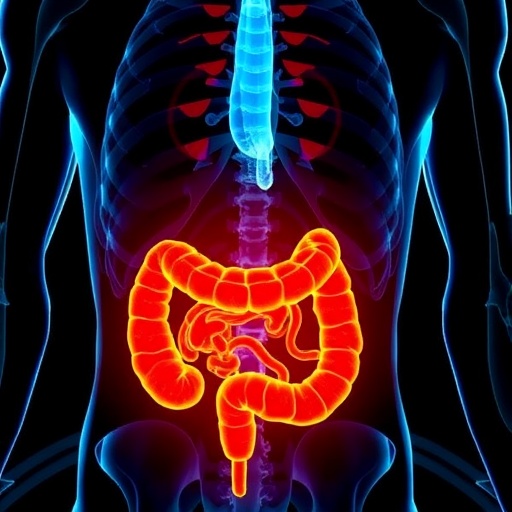Nicotinamide Riboside: A Potential Protector Against Radiation-Induced Intestinal Injury
In a ground-breaking study, researchers have unveiled the protective properties of nicotinamide riboside (NR), a form of vitamin B3, in mitigating radiation-induced intestinal injuries. This significant finding could revolutionize the way we approach treatments for patients undergoing radiation therapy, especially those battling various cancers. The research, spearheaded by Zhou et al., emphasizes the potential of NR in safeguarding the intestinal epithelium by addressing a critical cellular death pathway triggered by radiation exposure.
Radiation therapy plays a vital role in cancer treatment. However, its effects on normal tissues are a significant concern. The intestinal epithelium, which serves as a frontline barrier against pathogens and is crucial for nutrient absorption, often suffers severe damage due to radiation. This damage manifests as inflammation, edema, and, in severe cases, necrosis. Such reactions can lead to dire complications, including debilitating gastrointestinal symptoms and detrimental impacts on patient quality of life. As a result, protecting the intestinal lining during radiation therapy emerges as a crucial objective in oncological care.
The authors of the study turned their attention toward gasdermin E, a protein involved in pyroptosis – a form of programmed cell death that is distinct from apoptosis. Pyroptosis is characterized by the formation of pores in the cellular membrane, leading to cell lysis and the release of inflammatory cytokines. This process is beneficial in some contexts, such as infectious diseases, but becomes detrimental in the setting of tissue damage, like that induced by radiation. By targeting pyroptosis, particularly gasdermin E-mediated pathways, the team sought to identify a therapeutic strategy that could minimize collateral damage while preserving the integrity of intestinal cells.
Nicotinamide riboside has gained attention for its role as a precursor to nicotinamide adenine dinucleotide (NAD+), a coenzyme critical for various metabolic processes and cellular repair mechanisms. By augmenting NAD+ levels, NR has been shown to enhance mitochondrial function and promote cellular resilience against stressors. These properties position NR as a promising candidate for reducing tissue damage in scenarios where cells are subjected to inflammatory and oxidative stresses.
The research led by Zhou and colleagues meticulously demonstrated that treatment with NR significantly reduced markers of intestinal injury in preclinical models exposed to ionizing radiation. The investigators employed various in vitro and in vivo models to carefully evaluate the biochemical pathways activated by NR. They found that NR application resulted in lowered activation of gasdermin E, implying that the compound effectively curbed pyroptosis within intestinal epithelial cells. This elegant mechanism underscores the unique ability of NR to navigate cellular responses to radiation exposure.
One of the most compelling aspects of this study was the observed reduction in pro-inflammatory cytokines following NR treatment. Cytokines are messengers in the immune system, and their excess production can aggravate tissue damage and prolong inflammation, creating a vicious cycle of cellular injury. By mitigating the release of these cytokines, NR does not just protect intestinal cells but also potentially alleviates the overarching inflammatory response, thus paving the way for improved recovery.
Interestingly, the results indicated that NR administration led to enhanced intestinal barrier function. This critical outcome has vast implications for patient management in clinical settings. A robust intestinal barrier prevents the translocation of bacteria and toxins from the gut into systemic circulation, which can provoke septic complications in vulnerable patients. By reinforcing this barrier, NR may hold the key to reducing both local and systemic complications associated with radiation therapy.
The potential applications of NR extend beyond radiation therapy. Considering its mode of action, the findings may provide insights into developing therapies for other conditions associated with intestinal injury, including inflammatory bowel diseases and even acute pancreatitis. The versatility of NR as a protective agent suggests it could play a role in a broader therapeutic context, thereby appealing to a wide range of patients suffering from gastrointestinal distress.
As the medical community continues to explore NR’s therapeutic window, further studies will be vital in optimizing dosages and administration routes. Understanding the pharmacokinetics of NR and potential interactions with existing treatments will be crucial to its successful integration into clinical practice. Early-phase trials could rapidly follow, as there is a strong impetus for finding interventions to improve outcomes during chemotherapy and radiation therapies.
In conclusion, the research conducted by Zhou and his team provides a promising avenue for the use of nicotinamide riboside as a protective agent against radiation-induced intestinal injury. Through its elegant action on gasdermin E-mediated pyroptosis, NR opens doors to enhanced patient care in oncology. The drive towards translational research in this domain offers a glimmer of hope for patients undergoing radiation therapy, hinting at improved quality of life and therapeutic outcomes in the future.
As we await further investigations into the clinical feasibility of NR, the scientific community can celebrate a vital step towards innovative strategies in cancer treatment, where protection of the intestinal barrier could lead to a paradigm shift in patient care. The disruptions caused by radiation therapy may soon be alleviated by the harnessing of natural compounds such as nicotinamide riboside, providing renewed optimism for both patients and physicians alike.
Ultimately, the advances in our understanding of cellular responses to radiation injury and the potential for targeted interventions highlight a critical era in medical science where nutrition and molecular biology intersect to yield unexpected treatments. These insights underscore the importance of continued investment in research that aims to unlock the healing promises of the molecules within our reach.
Subject of Research: Radiation-induced intestinal injury and protective agents
Article Title: Nicotinamide riboside attenuates radiation-induced intestinal injury by suppressing gasdermin E-mediated pyroptosis in intestinal epithelial cells
Article References:
Zhou, Q., Liu, L., Lin, X. et al. Nicotinamide riboside attenuates radiation-induced intestinal injury by suppressing gasdermin E-mediated pyroptosis in intestinal epithelial cells. J Transl Med 23, 1126 (2025). https://doi.org/10.1186/s12967-025-07012-1
Image Credits: AI Generated
DOI: 10.1186/s12967-025-07012-1
Keywords: Nicotinamide riboside, radiation therapy, intestinal injury, gasdermin E, pyroptosis, cytokines, intestinal barrier.




